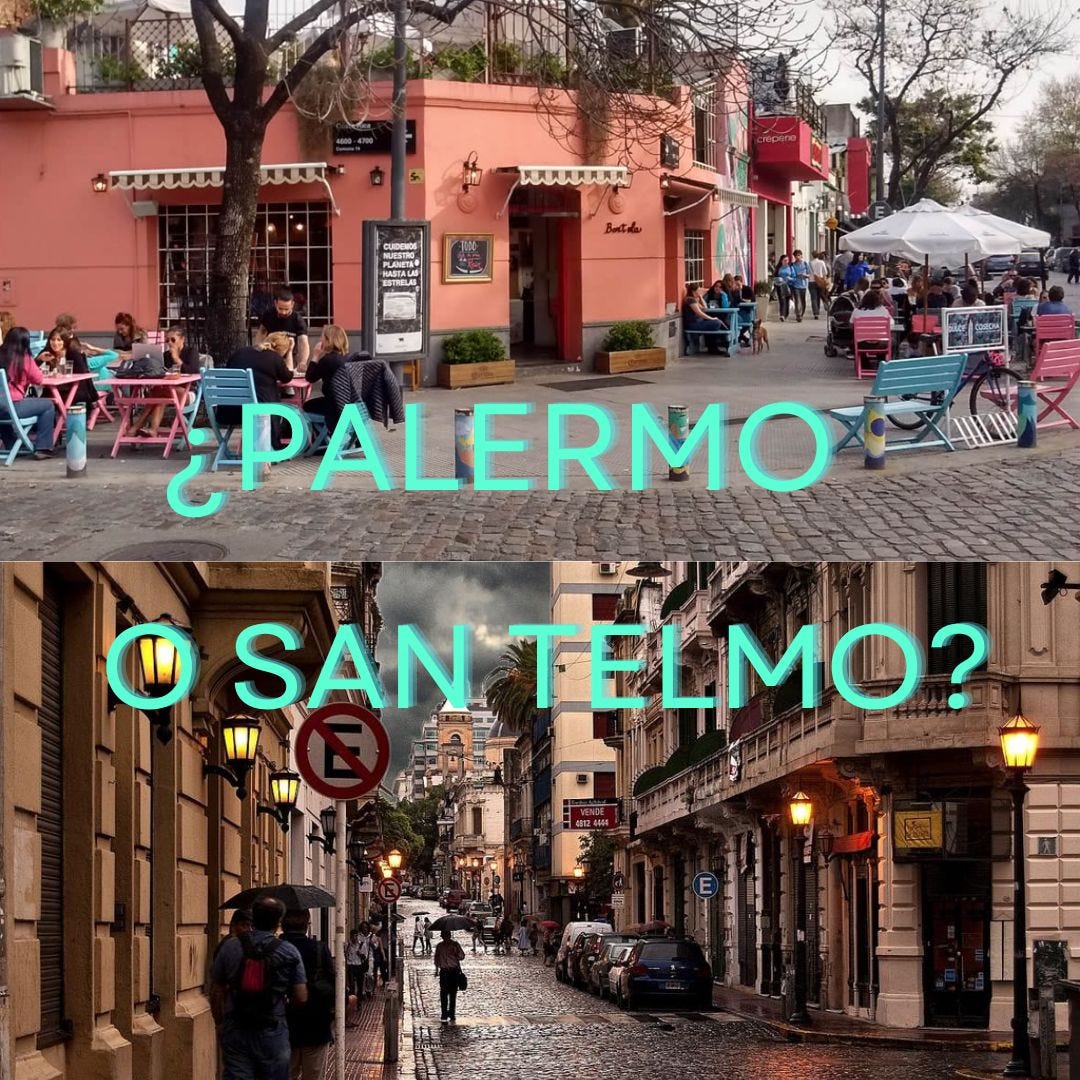Muchas personas que están por venir a Buenos Aires se hacen la pregunta: ¿qué barrio es mejor para vivir? Y entonces en los foros empiezan las comparaciones:
Many people who are about to come to Buenos Aires ask themselves the question: Which neighborhood is better to live in? And then the comparisons start in the forums:
-Caballito es más auténtico que Palermo.
-Pero en Palermo hay más restaurantes que en Caballito.
-Recoleta es más seguro que los demás barrios.
-En Devoto hay menos medios de transporte pero hay más casas bajas que en los barrios céntricos.
-En la zona norte hay más escuelas bilingües que en el resto de la ciudad.
Let’s take a look at how we make comparisons in Spanish. For example, how would we say something is better than something else, something is smaller than something else, etc?
Compare Adjectives
Más + Adjective + Que (More + Adjective + Than)
Los negocios en el barrio de Palermo son más caros que los negocios en el barrio de Almagro. (The shops in Palermo are more expensive than in Almagro.)
Menos + Adjective + Que (Less + Adjective + Than)
La Plata es una ciudad menos popular que Buenos Aires. (La Plata is a city less popular than Buenos Aires)
Tan + Adjective + Como (As + Adjective + As)
El bife de chorizo es tan rico como el bife de lomo. (The bife de chorizo is as tasty as the bife de lomo.)
Exceptions: “más bueno” doesn’t exist. We use “mejor”. “Más malo” doesn’t exist. We use “peor”.
Compare Nouns
Más + Noun + Que (More + Noun + Than)
En Buenos Aires hay más habitantes que en París. (In Buenos Aires there are more residents than in Paris.)
Menos + Noun + Que (Less + Noun + Than)
En Recoleta hay menos bares que en Palermo. (In Recoleta there are less bars than in Palermo.)
Tanto/a/s + noun + Como (As Many + noun + As There Are)
You should use tantos or tantas according to the noun, and tanto/a are for uncountable nouns).
Tengo 2 perros, 2 gatos y una tortuga. En mi casa hay tantos perros como gatos, pero no hay tantas tortugas como perros o gatos. (I have 2 dogs, 2 cats, and a turtle. In my house, there are as many dogs as cats, but there are not as many turtles as there are dogs or cats.)
En esa taza hay tanto café como en mi taza. (In this cup there is as much coffee as there is in my cup.)
Keep reading with a 7-day free trial
Subscribe to Speak Spanish BA to keep reading this post and get 7 days of free access to the full post archives.





